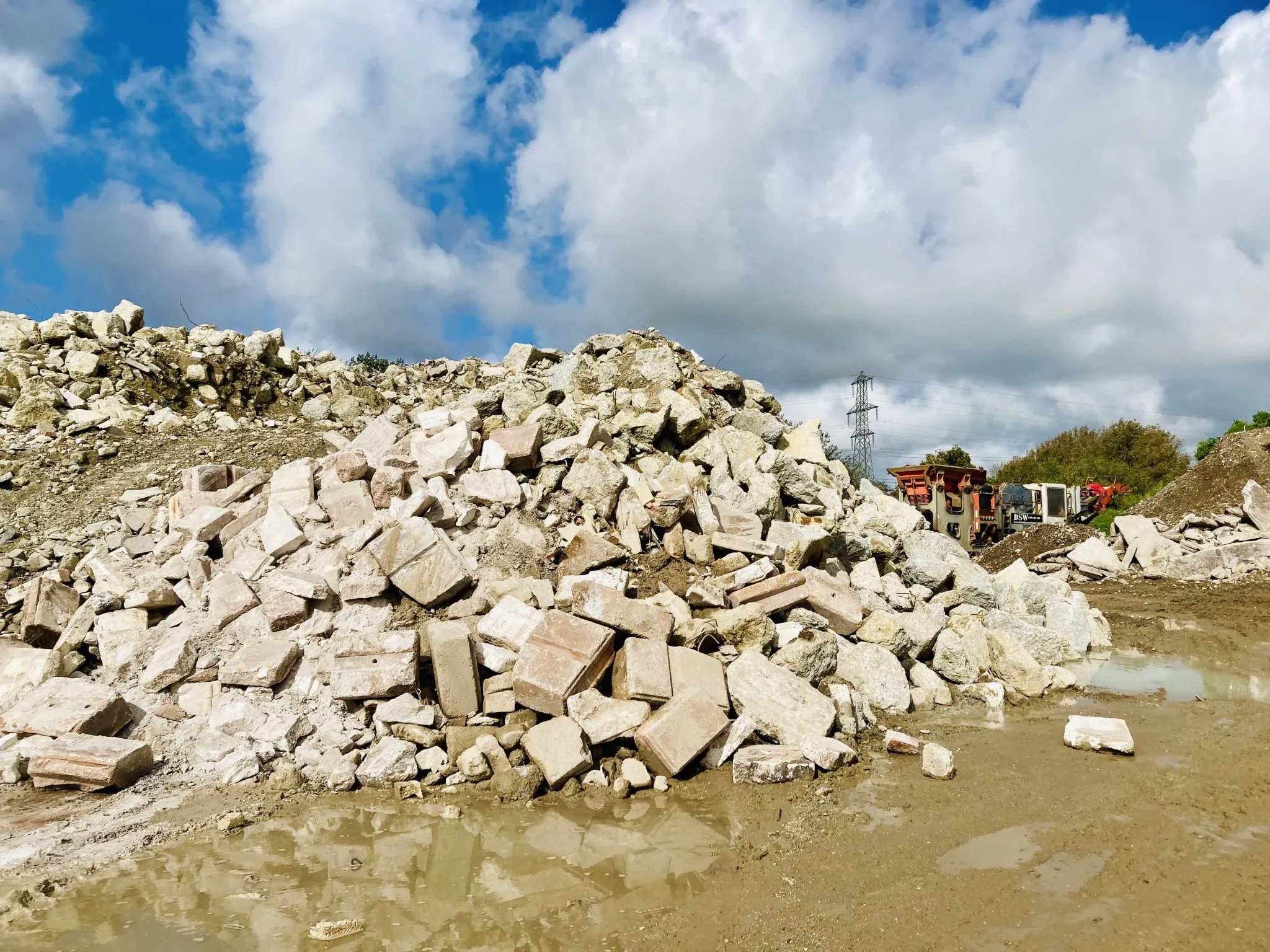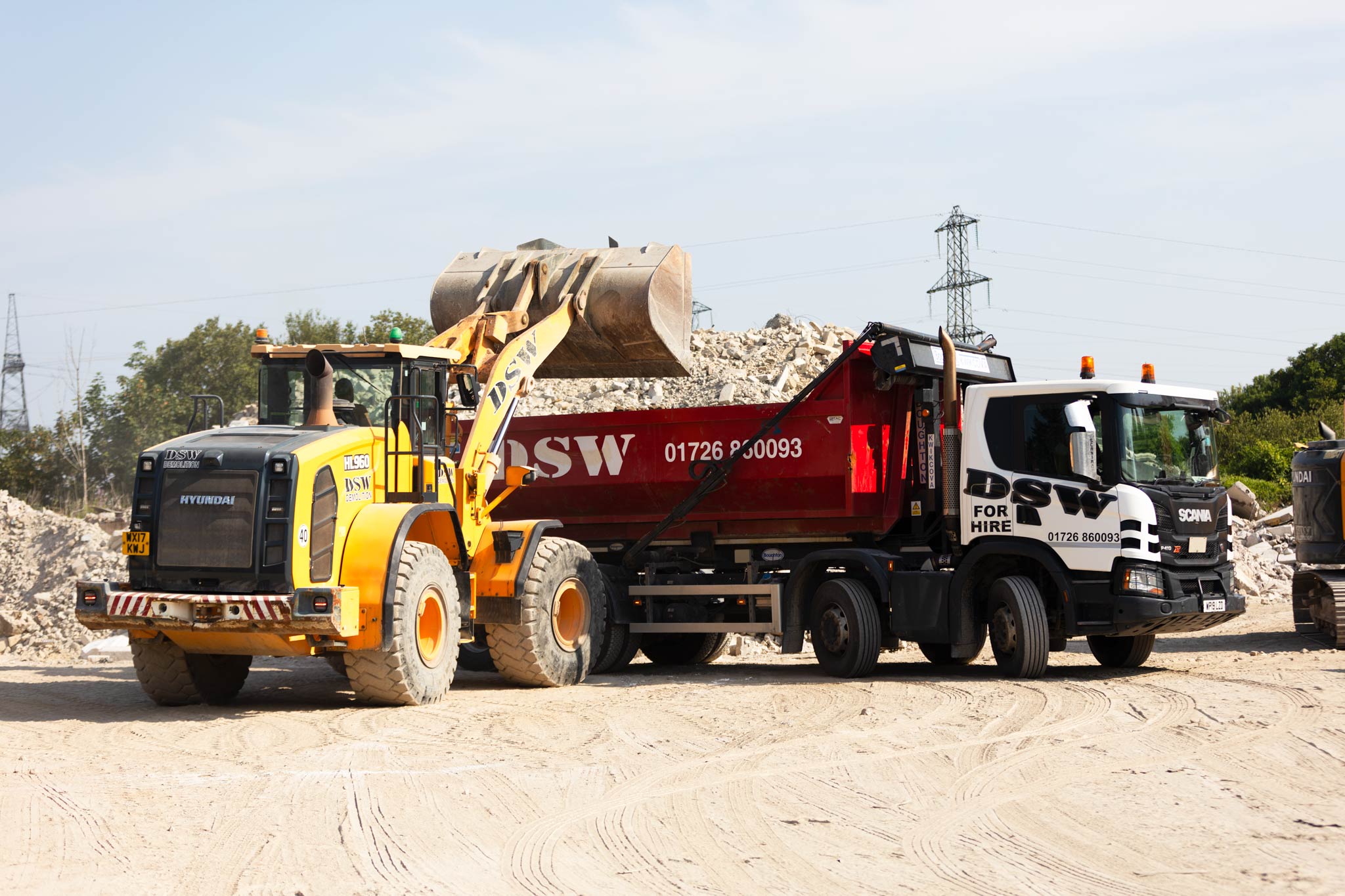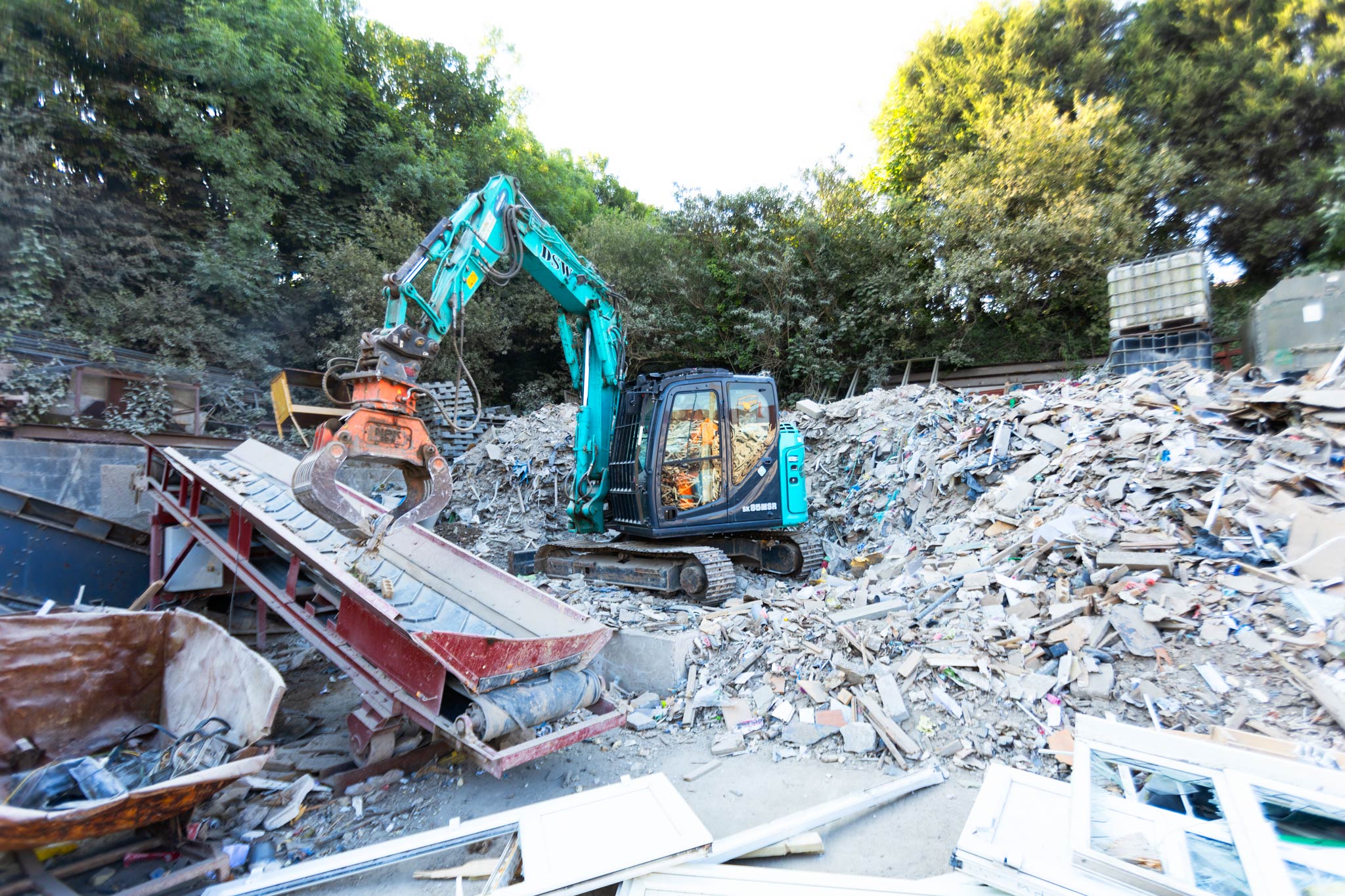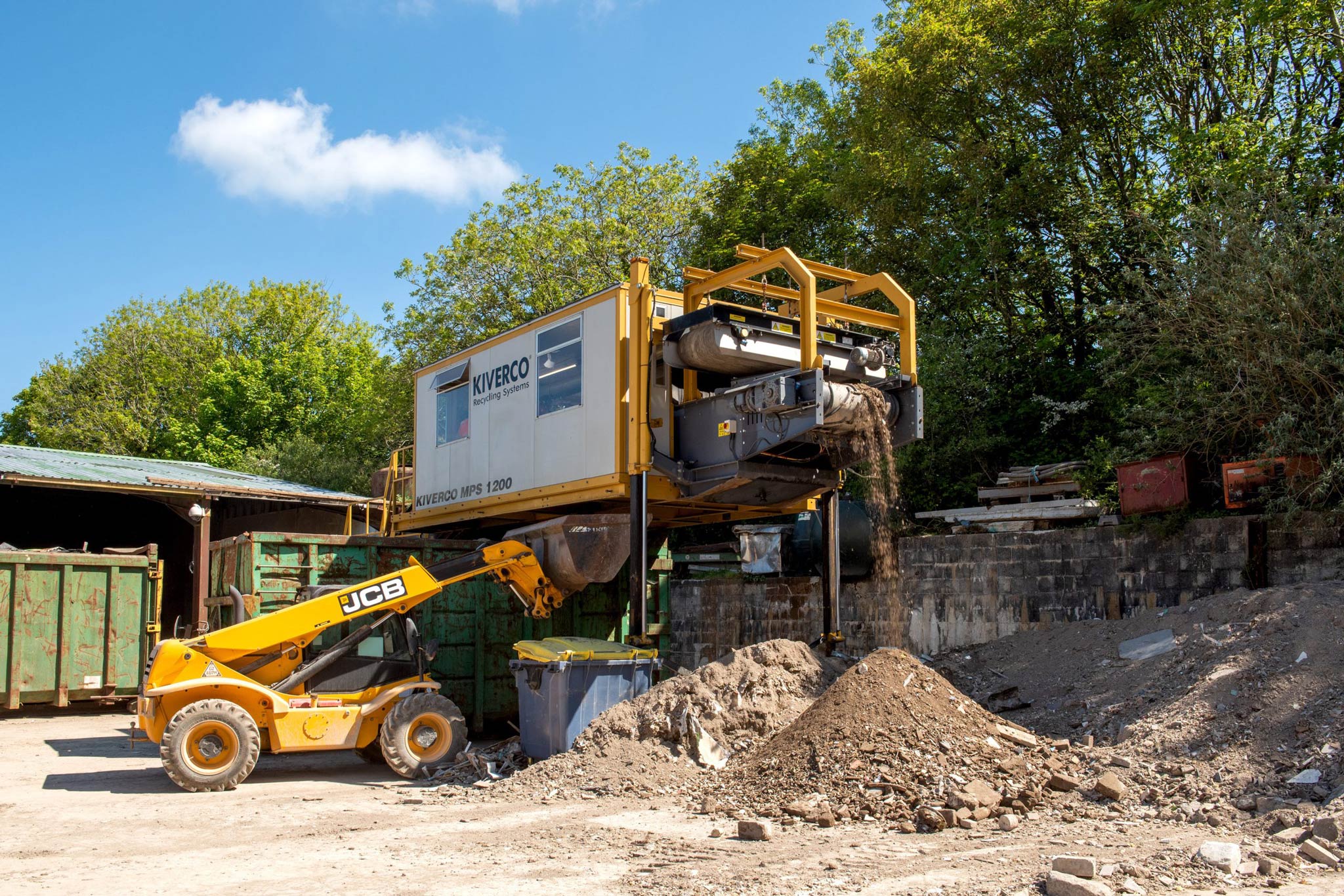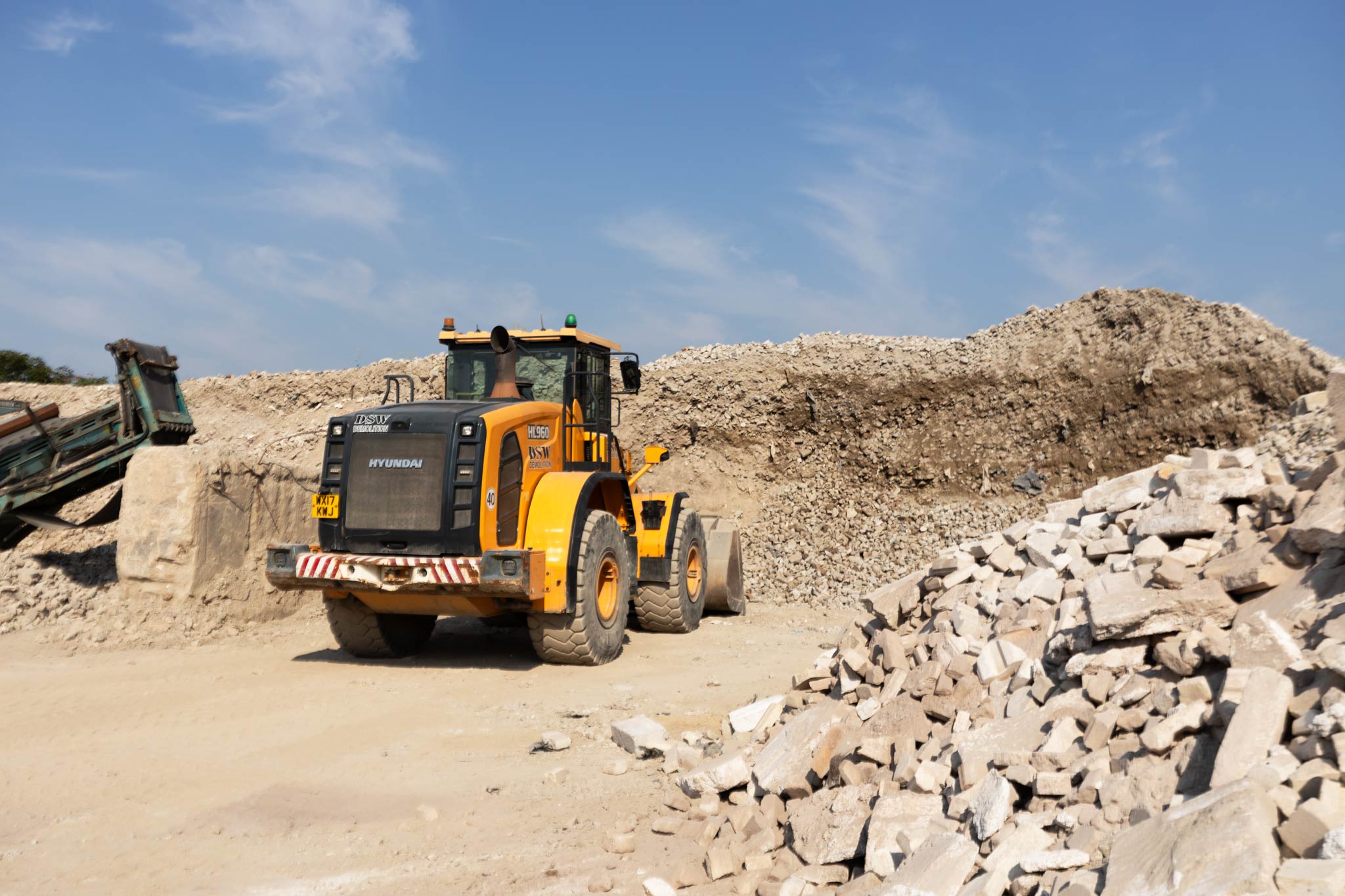The rubble that DSW collect from demolished buildings typically undergoes several processes for disposal and recycling back our depot in St Austell. Here’s what generally happens to rubble from demolished buildings:
- Sorting and Removal: After a building is demolished, the debris and rubble is typically sorted to remove any hazardous materials. These materials are disposed of according to strict environmental regulations to prevent harm to the environment and public health.
- Recycling: Much of the non-hazardous rubble from demolished buildings can be recycled. Common materials that are recycled from construction and demolition debris include concrete, bricks, wood, metal, and asphalt. At our recycling facility DSW can crush and process these materials to create recycled aggregates, which can be used in new construction projects.
- Landfill Disposal: Some rubble that can’t be recycled or reused is disposed of in landfills. Landfills are designed to contain and manage waste materials safely, but this is typically the least environmentally preferred option and one that we aim to avoid where possible.
- Reuse: Salvageable materials like doors, windows, fixtures, and architectural elements can be salvaged and resold or repurposed in other construction projects. This helps reduce waste and promote sustainability.
- Fill Material: In some cases, clean rubble may be used as fill material in construction projects, roadbeds, or land reclamation. This can save costs and reduce the need for virgin materials.
- Crushing and Processing: Concrete and masonry rubble can be crushed and processed into aggregate materials that can be used as a base for roads, parking lots, and new construction. This process is often called “concrete recycling.”
- Regulatory Compliance: Demolition and disposal of Construction & Demolition debris is subject to a lot of HSE and Environment Agency regulations, which dictate how materials should be handled, transported, and disposed of. Compliance with these regulations is crucial to protect the environment and public health and something that we take very seriously. We are the only NFDC approved demolition contractors in Cornwall. and we take our accreditations seriously in order to constantly improve our standards and processes.
DSW’s efforts to promote sustainable demolition practices and recycling of building materials have increased in recent years as a way to reduce waste, conserve resources, and lower the environmental impact of construction and demolition activities.
It’s important to note that the specific processes and regulations can vary by location, so the fate of rubble from demolished buildings may differ depending on where the demolition takes place. However, the above is a general example of how we do things at Demolition South West.
